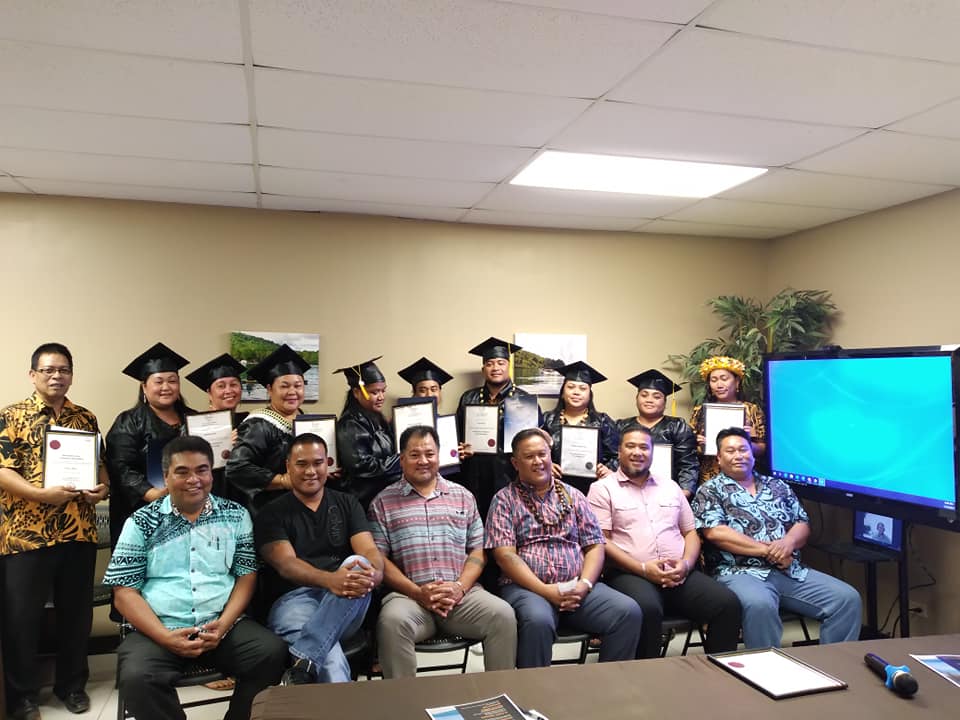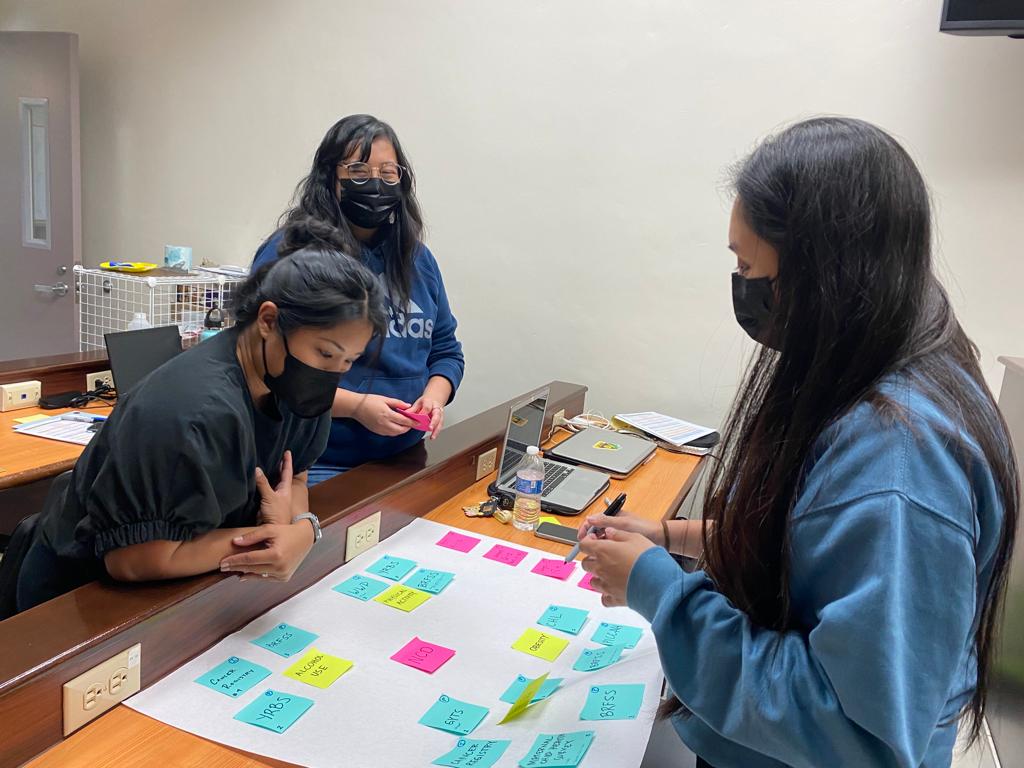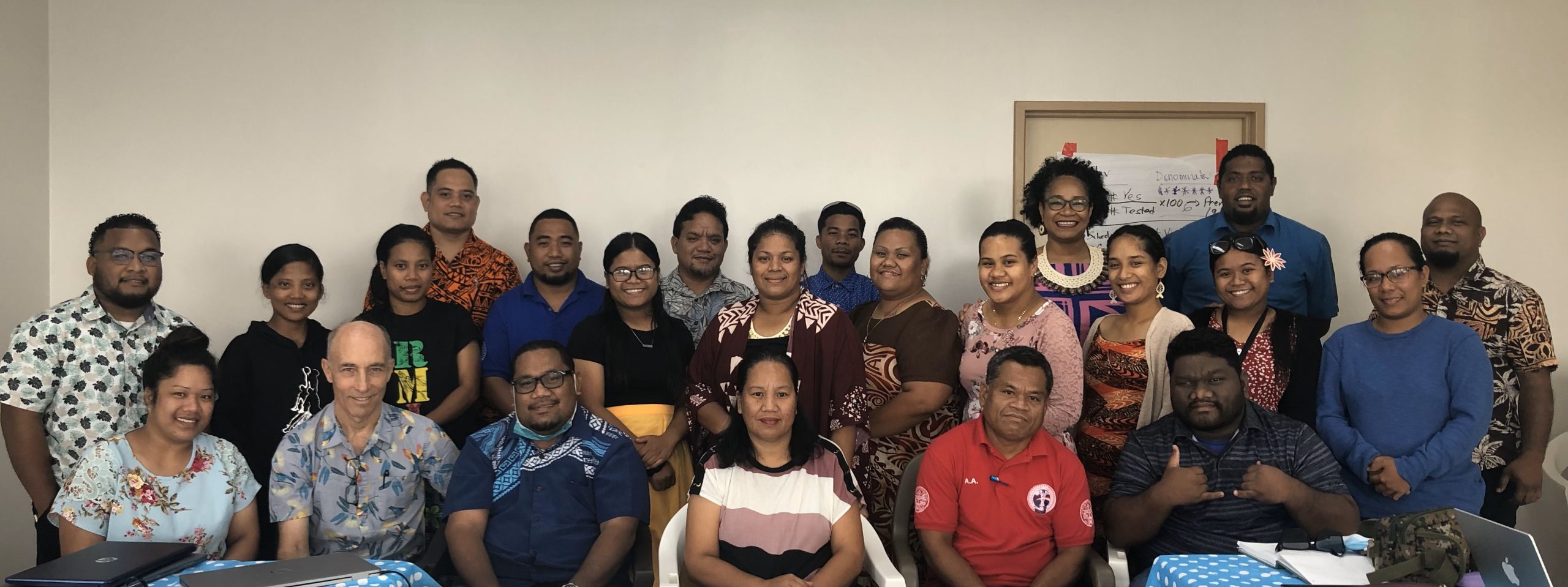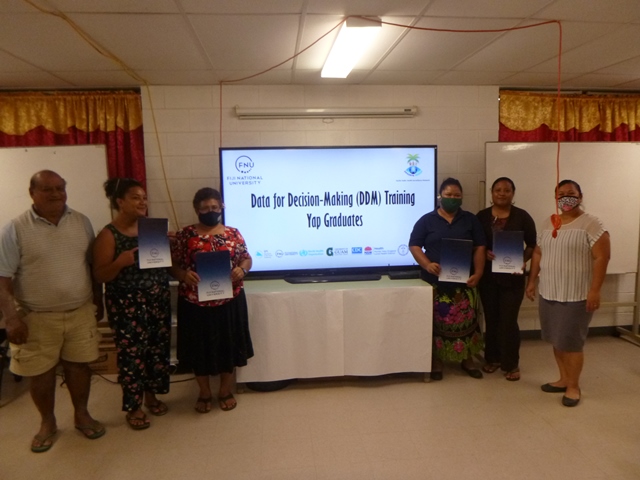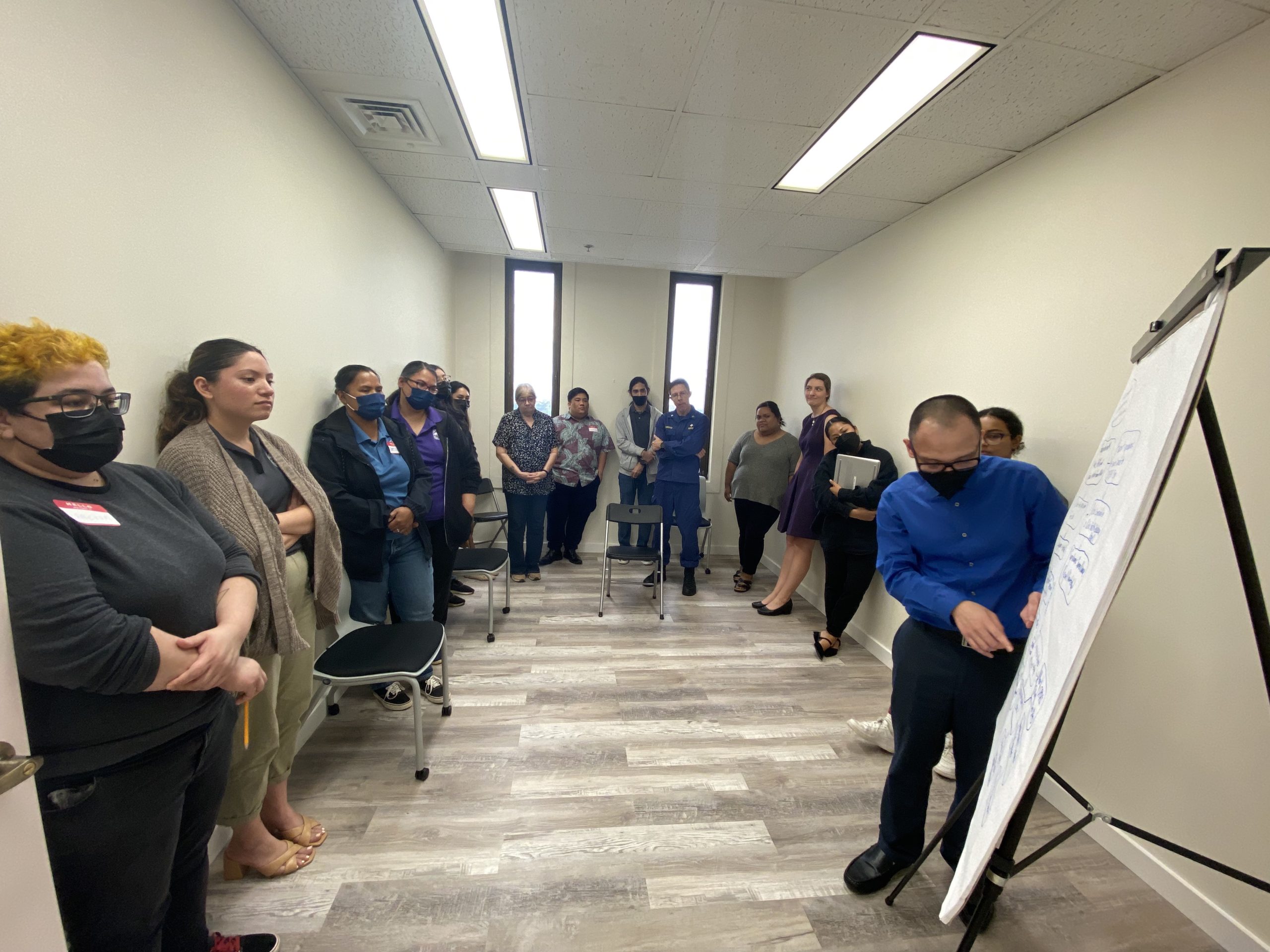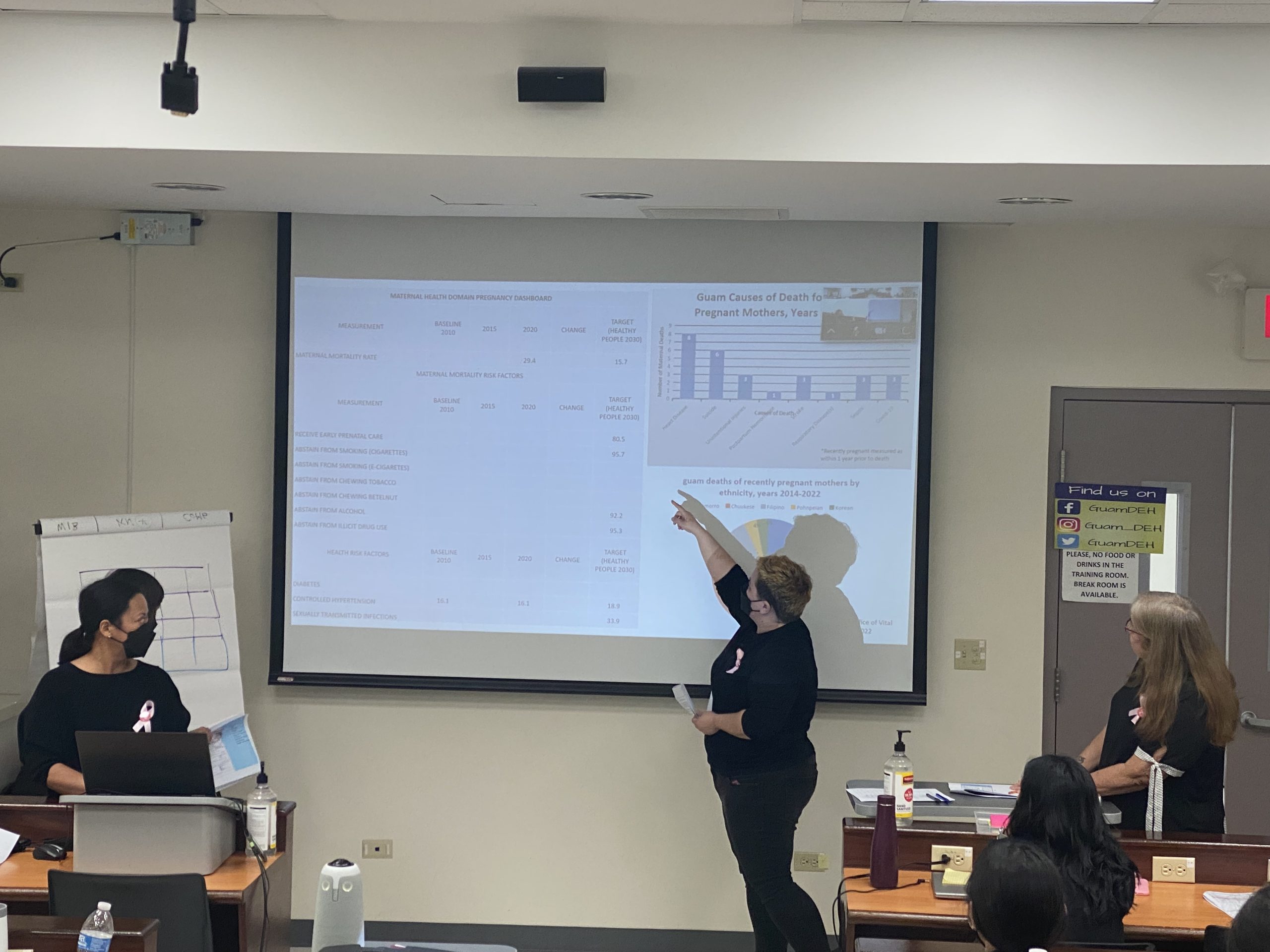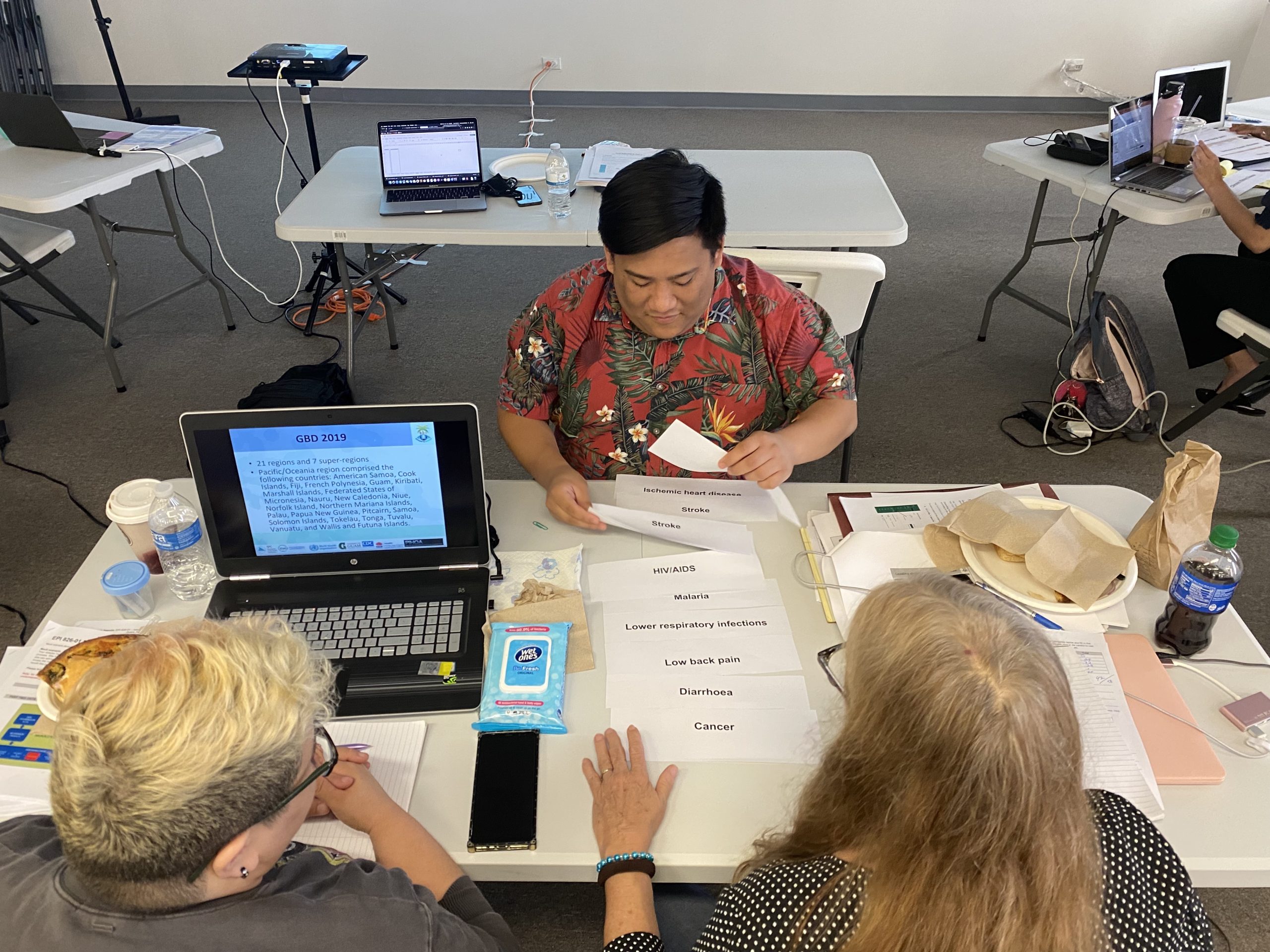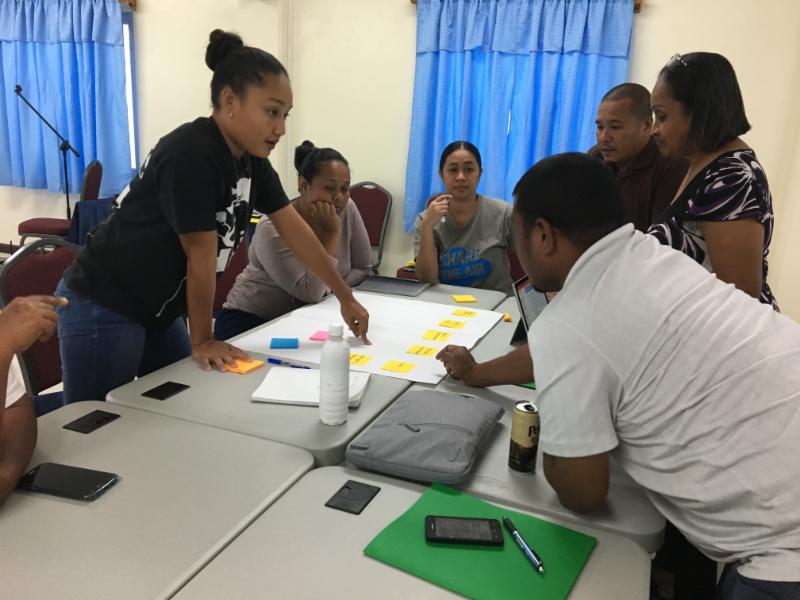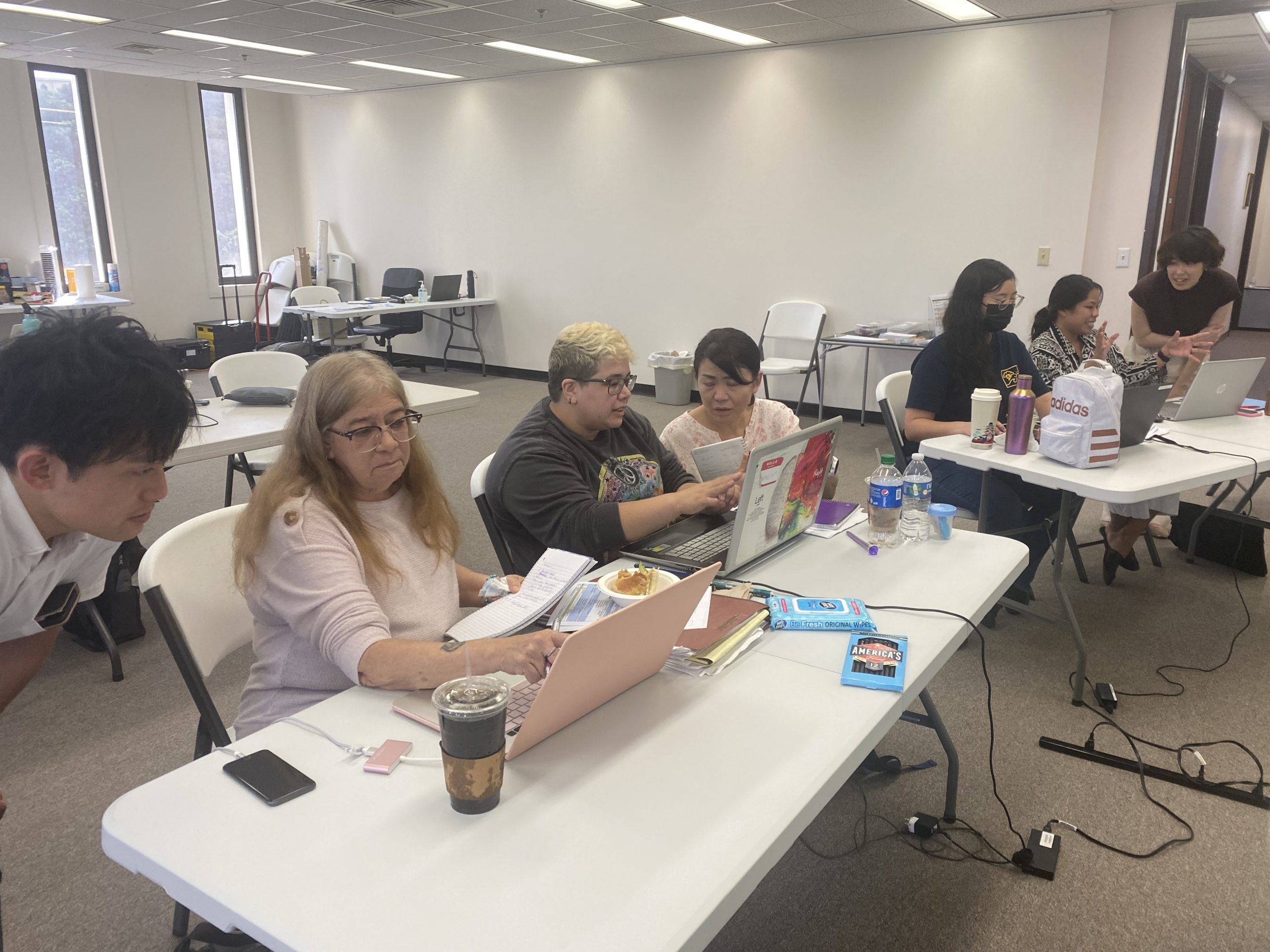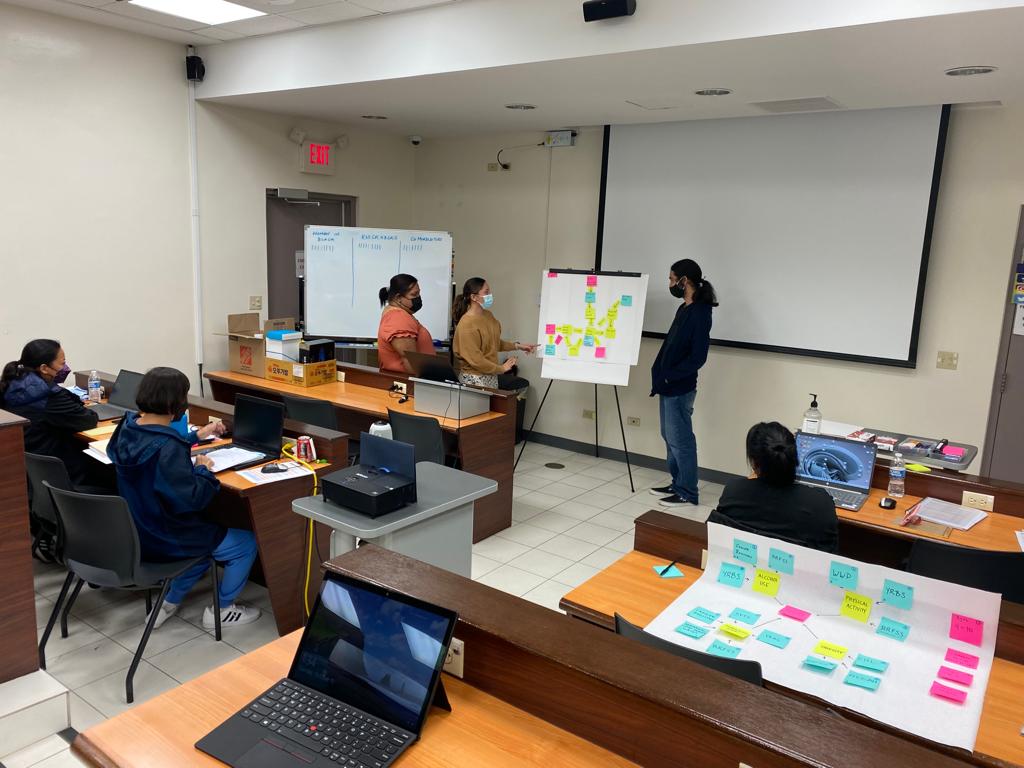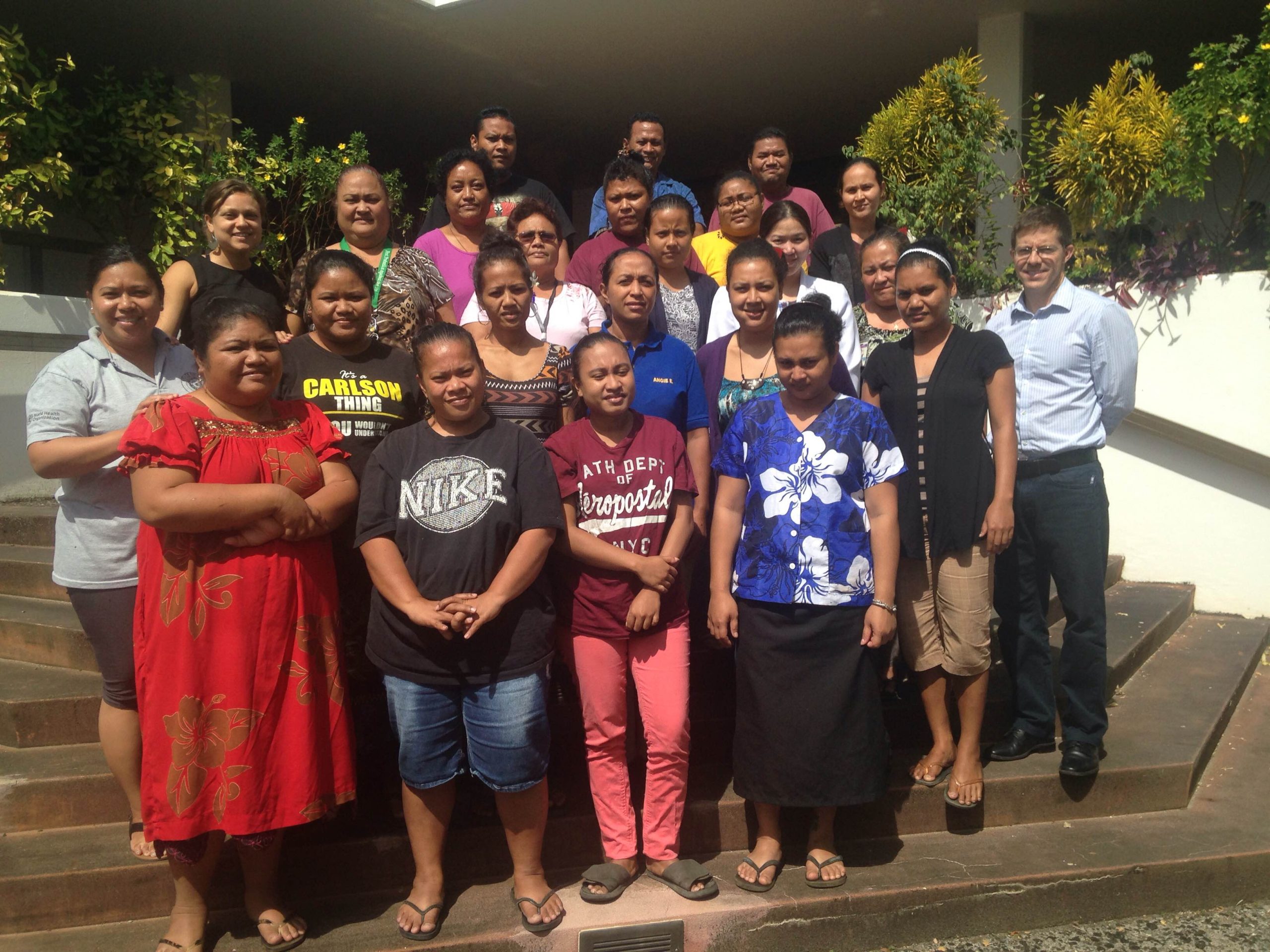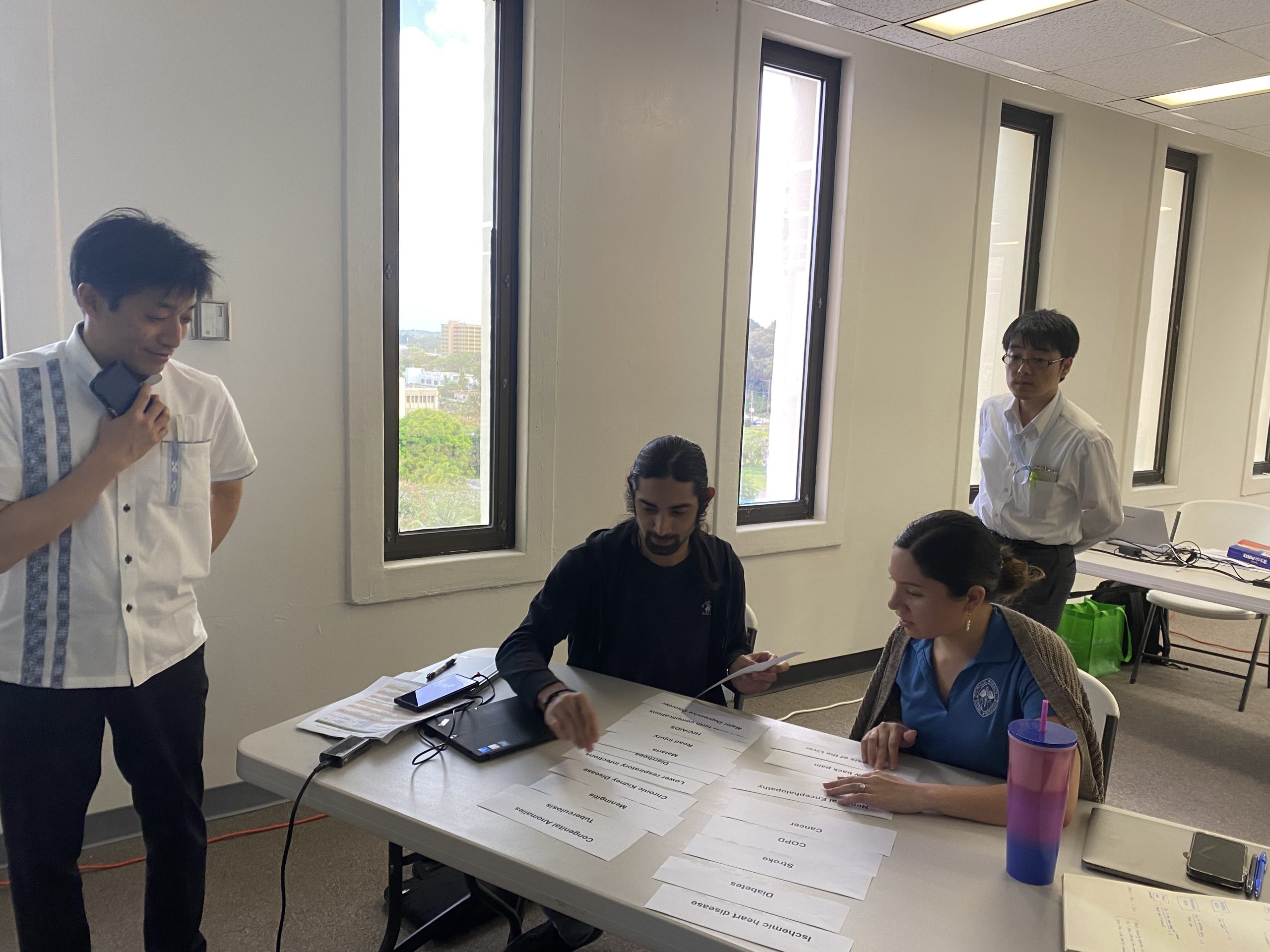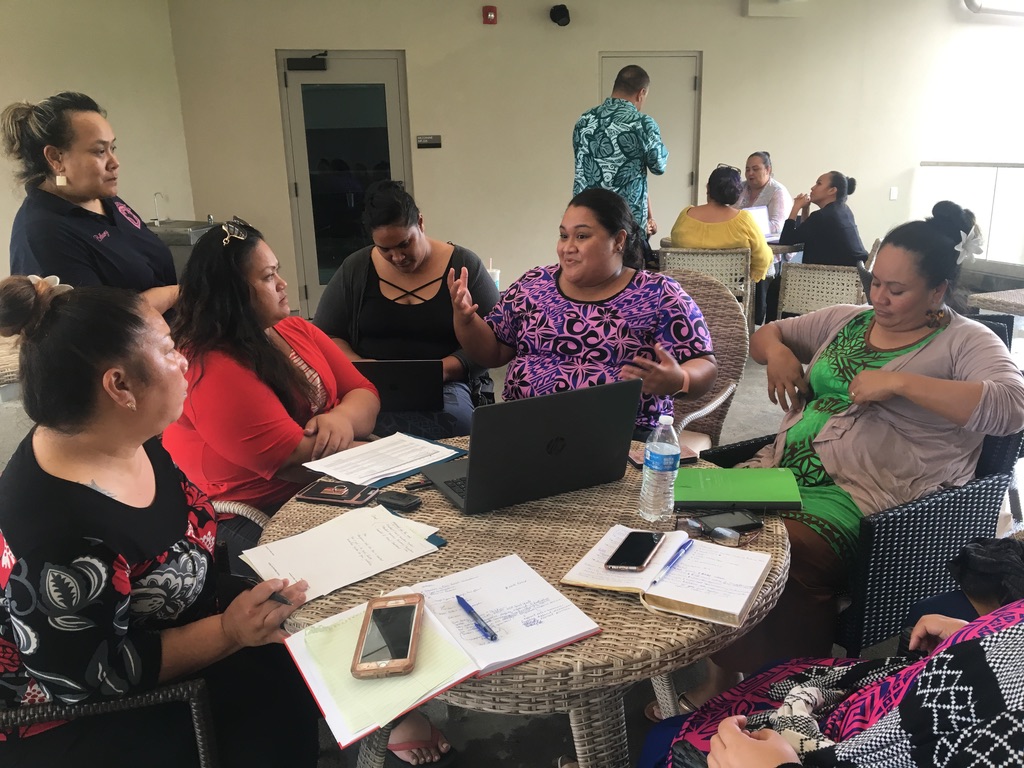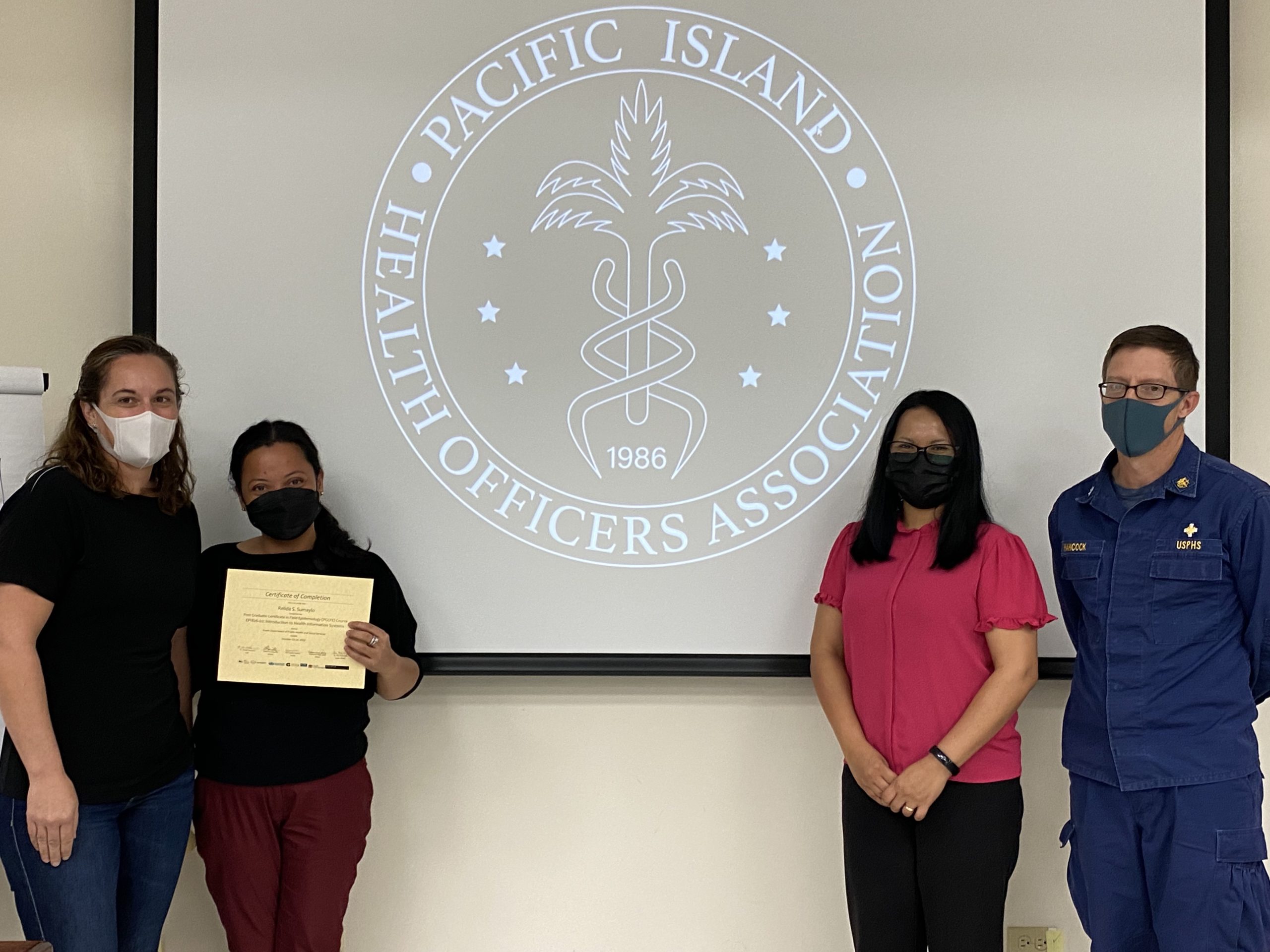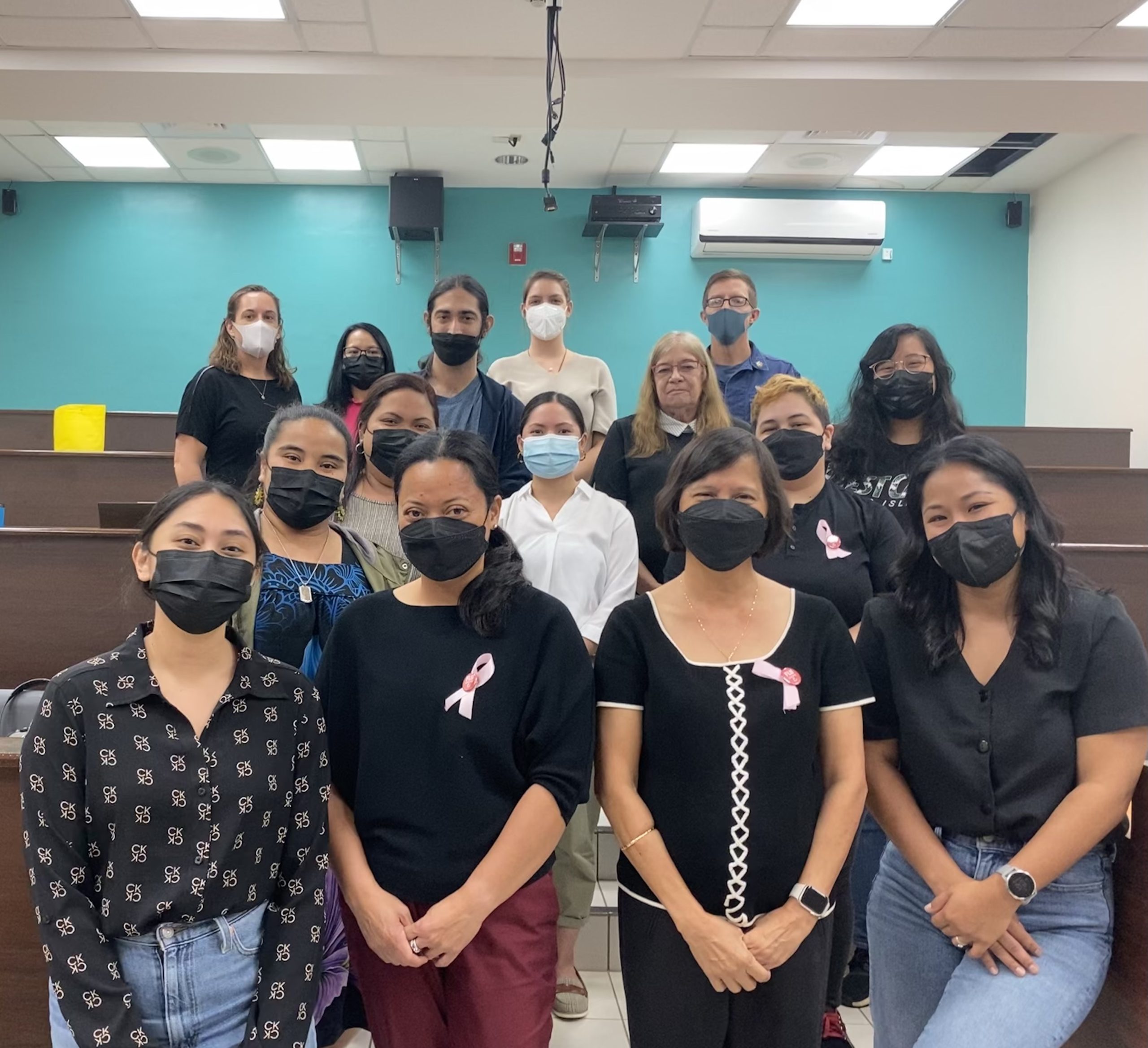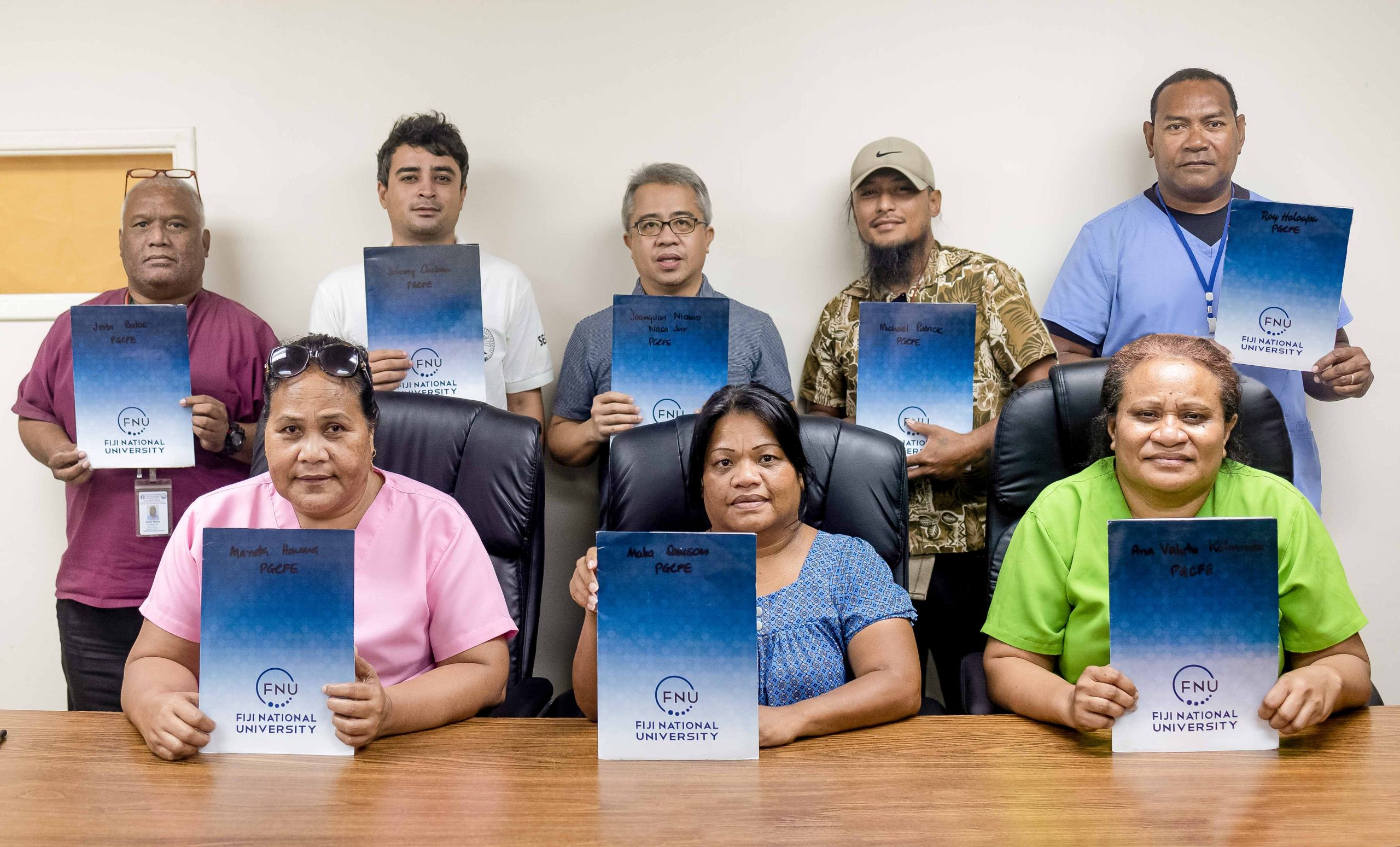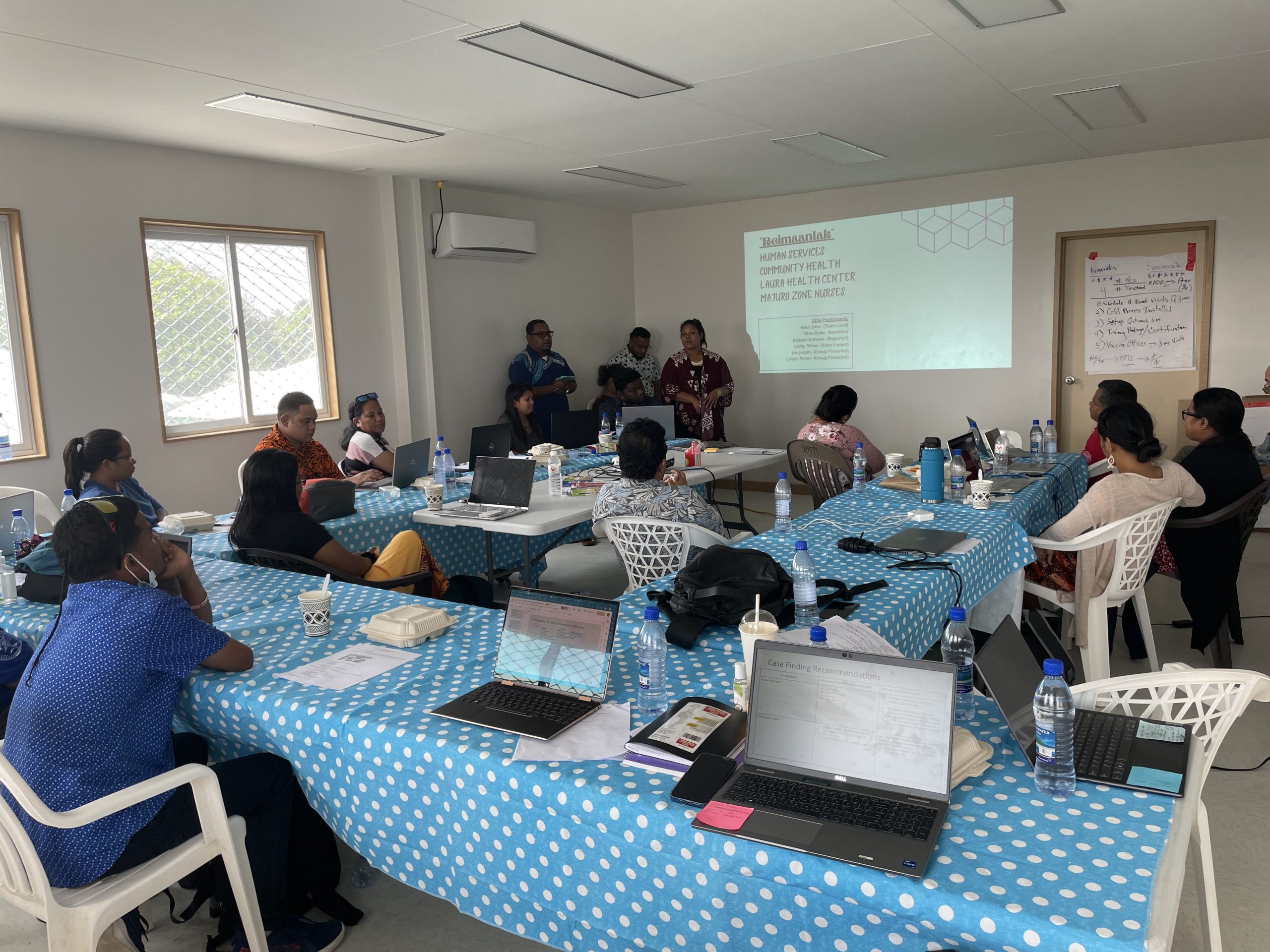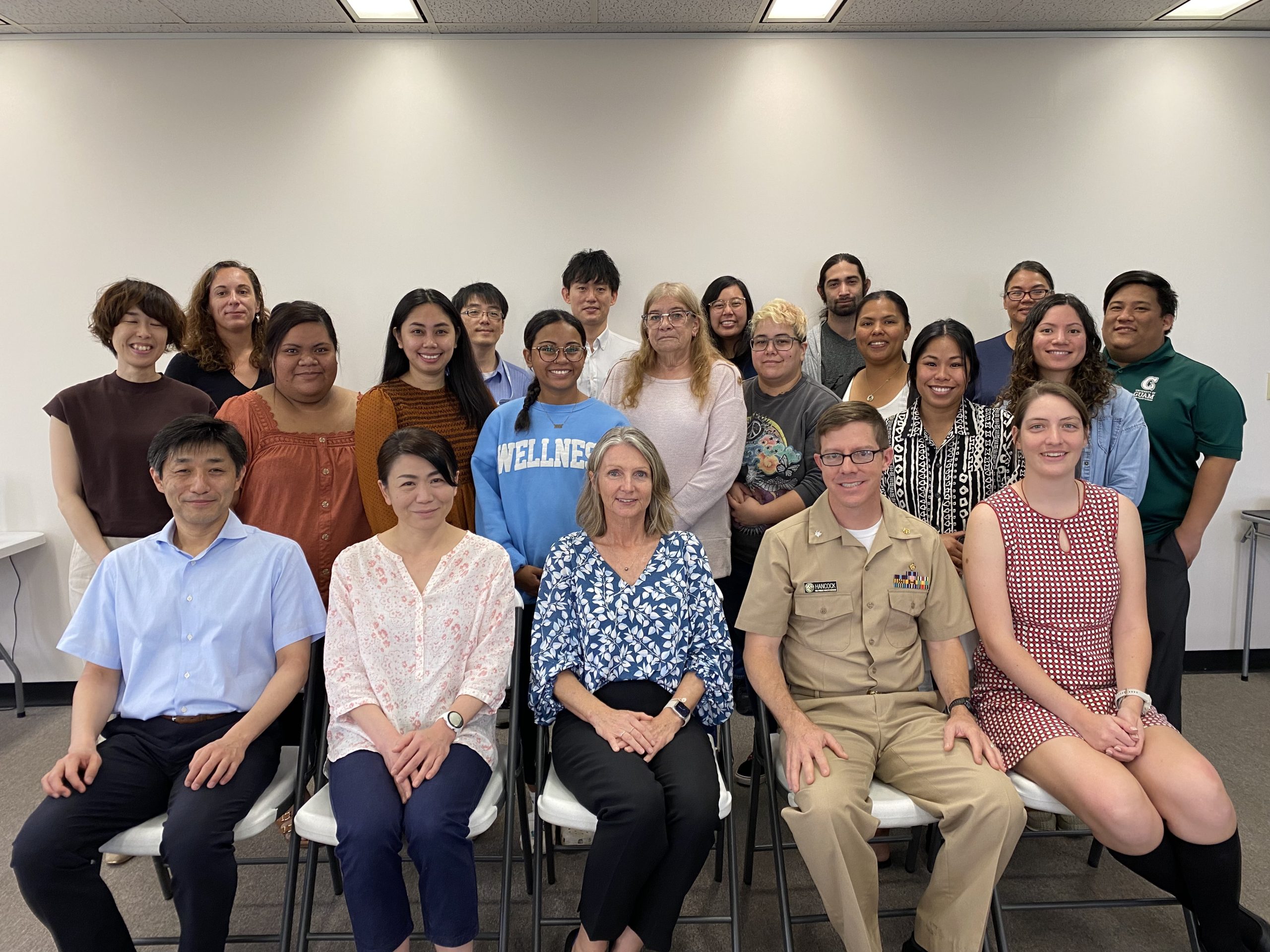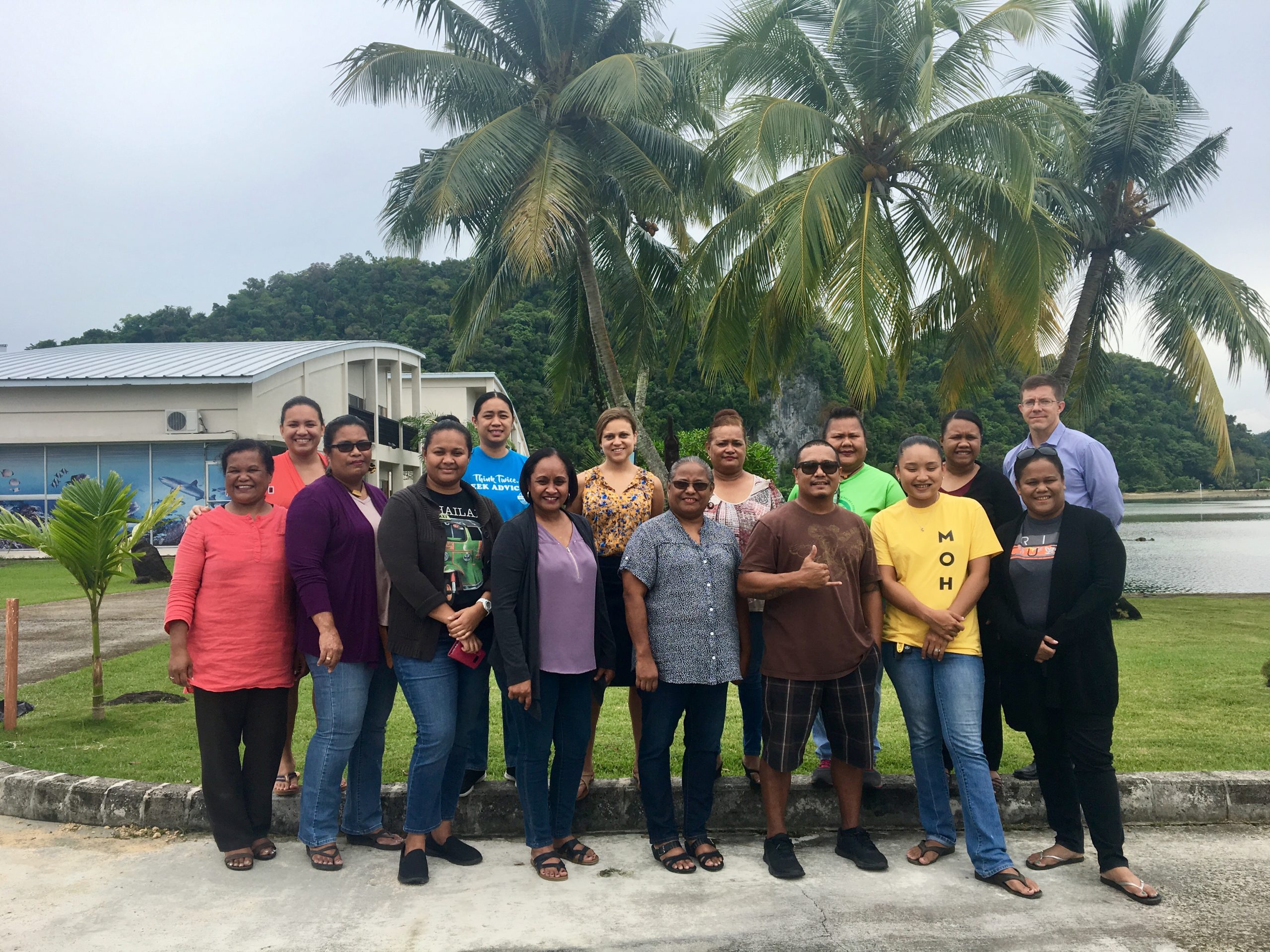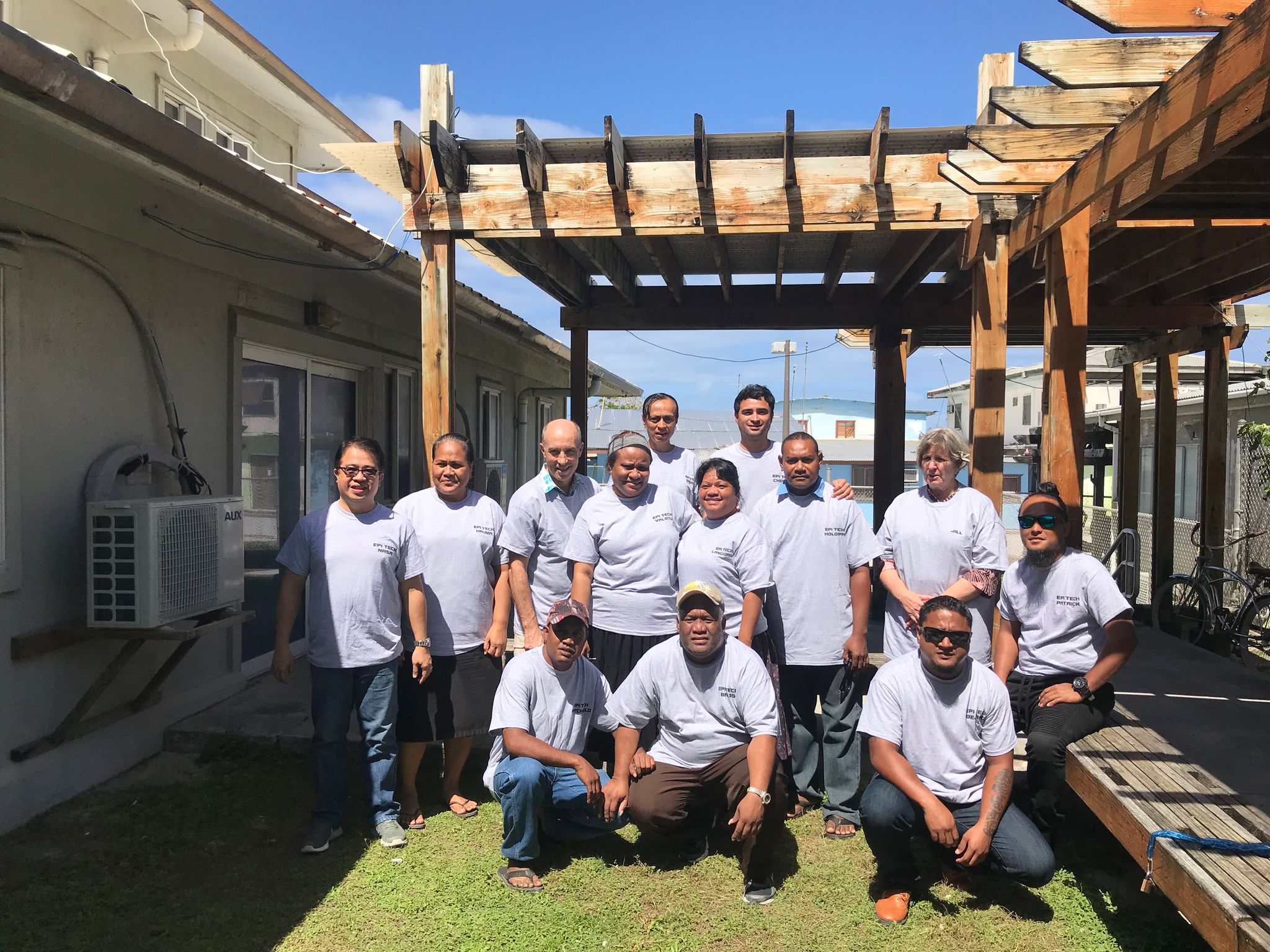Strengthening Health Interventions in the Pacific (SHIP)
An accredited training program for meeting public health challenges in the Pacific by transforming data into action
Strengthening Health Interventions in the Pacific (SHIP) is modeled after the Centers for Disease Control and Prevention (CDC)’s Field Epidemiology Training Program (FETP) and has been adapted specifically for the Pacific region. SHIP is managed by the partners of the Pacific Public Health Surveillance Network (PPHSN) and is accredited by Fiji National University (FNU).
The SHIP program aims to strengthen epidemiology and surveillance capacity by focusing its training on two key areas:
1. Preparing U.S.-Affiliated Pacific Islands (USAPIs) health agencies’ staff at all levels to become certified Epi Technicians.
2. Developing high-priority surveillance and health information system components for health agencies.
By strengthening my skills in preparing for and responding to natural disasters, the DDM training helped boost my confidence in making solid recommendations to the Head of State and agencies, traditional leaders, and the community.
With the knowledge I gained from DDM, I am now able to collect, record, analyze, report data in new ways, and use the data to plan, evaluate and make improvements in my workplace.
Building on the model of learning “from work, at work, for work,” the SHIP program draws upon actual health agency examples that bridge classroom instruction with workplace implementation and trains staff to transform data into action. The overall objective of this accredited program is twofold: to improve the caliber of information/surveillance systems and strengthen the capacity of health professionals to meet immediate and future public health challenges in the USAPIs and the Pacific region.
The joint PIHOA-CDC Regional Epidemiology Unit (REU) is leading the implementation of the SHIP program in the USAPIs, which include: American Samoa, the Commonwealth of the Northern Marianas (CNMI), the Federated States of Micronesia (FSM), Guam, the Republic of the Marshall Islands (RMI), and the Republic of Palau (Palau).
The SHIP program is structured as three consecutive tiers, all of which are accredited by Fiji National University.
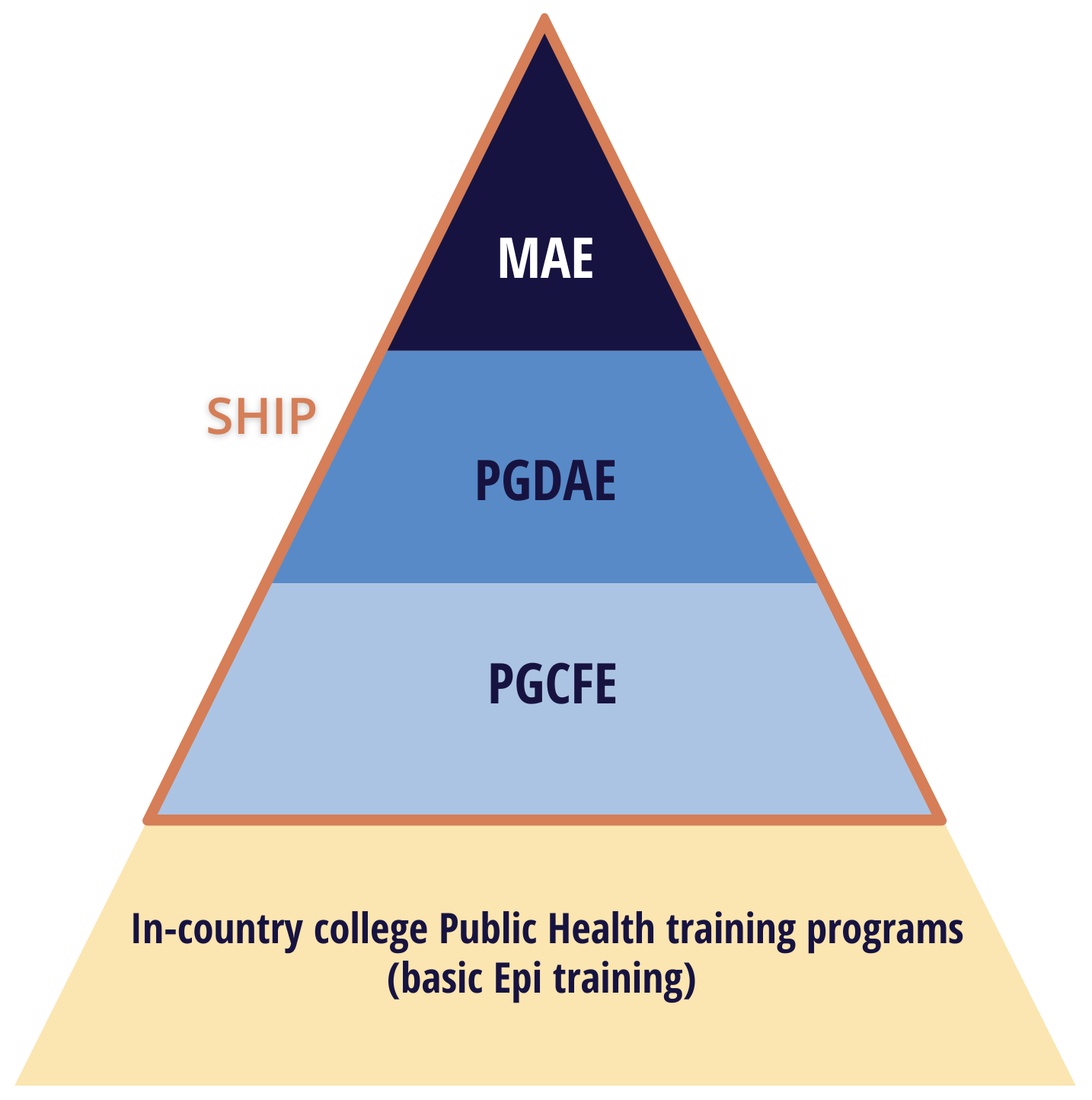
Tiers 1 and 2 are each comprised of 4-5 weeklong training modules delivered over 10-12 months online and/or on-site, plus a special project submission at the end of each tier’s course series.
Tier 3 is a year-long program delivered by experienced epidemiologist mentors. In-country health data are used in each course, and every project is developed and carried out based on real-world priorities of the USAPIs health agencies in partnership with each Health Department/Ministry.
Who Can Attend SHIP?
The Certificate is designed for health professionals at all levels who work with health information and data related to communicable diseases, non-communicable diseases, maternal and child health, behavioral health, and environmental, laboratory, and clinical data. USAPI Ministries/ Departments of Health initiate the process by nominating interested staff.
The Diploma and Master’s are geared to students who have successfully completed the Certificate.
Why Participate in SHIP?
SHIP is designed to measurably improve in-country surveillance and health information systems. The training program aims to advance health security in the Pacific Region through the One Health approach to public health, environmental health, and animal health. As a result of this targeted effort, the Ministries/Departments of Health will strengthen their existing systems for collection, management, analysis, and interpretation of health data, and streamline the dissemination of information products to inform decision making.
SHIP Program participants will acquire the knowledge and skills to:
- Detect and respond to public health emergencies, such as disease outbreaks and non-communicable disease crises.
- Collect, analyze, interpret, communicate, and use health data for the purpose of informed decision-making.
- Design, conduct, and report on research projects.
- Evaluate and strengthen surveillance systems, as well as Health Emergency Preparedness and Response capacity.
Participants will also benefit by:
- Applying knowledge and skills directly in their own workplace and, by working in collaboration with their supervisor, develop and implement projects that meet identified health agencies.
- Being mentored by SHIP program faculty.
- Networking with other health professionals regionally and in-country, as well as with U.S. federal and international partners: CDC, PPHSN, SPC, WHO, and others.
Participants who successfully complete course modules and projects will receive degrees accredited by FNU. Tier 1 level courses will provide graduates with accreditation for a Post-Graduate Certificate in Field Epidemiology (PGCFE); Tier 2 graduates will earn a Post-Graduate Diploma in Applied Epidemiology (PGDAE), and Tier 3 graduates will receive a Master of Applied Epidemiology (MAE).
The SHIP program is delivered at no cost to qualified participants.
SHIP Program Tiers and Courses
- Tier 1: Post-Graduate Certificate in Field Epidemiology (PGCFE) (Epidemiology Technician)
This certificate is granted after successfully completing the Data for Decision Making (DDM) course, which consists of four modules plus a field epidemiology project:
- Introduction to Epidemiology and Field Epidemiology
- Introduction to Health Information Systems
- Investigation and Management of Disease Outbreaks
- Management and Analysis of Health Information Systems Data
- Field Epidemiology Project
- Tier 2: Post-Graduate Diploma in Applied Epidemiology (PGDAE)
This diploma level incorporates two courses:
- Biostatistics, Data Management, and Analysis
- Operational Research (3 Modules to Design, Conduct, and Report on a Research Project)
- Tier 3: Master of Applied Epidemiology (MAE)
The master’s program is achieved by completing three projects:
- Analytical Epidemiology Project
- Evaluation of a Health System or Program
- Health Emergency Preparedness and Response
Throughout each course, students learn by doing. The courses are offered through a combination of classroom-based teaching and learning sessions followed by structured activities that encourage and support the model of learning from work, at work, and for work, where students design and implement selected projects prioritized by their workplace supervisors and Ministers/Directors of Health.
Eligibility
To enroll, SHIP program applicants must have:
- A bachelor’s degree, or three years’ experience working in the health sector; and,
- A supportive reference from a workplace supervisor;
- Endorsement/nomination by the Ministry/Department of Health;
- Applicants without an undergraduate health degree or with less than the required professional experience may be considered for enrollment on a case-by-case basis.
The Ministry/Department of Health must endorse and nominate eligible applicants to enroll with FNU and gain acceptance into the SHIP program. Interested health professionals should seek support and approval from their workplace supervisor and the Ministry/Department of Health.
Application
Candidates for the SHIP program will be evaluated and selected based on the following criteria:
- Meet the minimum qualifications.
- Provide a supportive reference from the workplace supervisor.
- Secure a written endorsement by the Ministry/Department of Health.
- Commit to attending and completing the courses for the SHIP tier they are applying to.
- Complete application and include required supporting documents.
To be considered, interested candidates should complete and submit the following documents:
- FNU Enrollment and Admission Form
- Copy of valid passport
- Copy of birth certificate
- Marriage/court decree or divorce certificate to document any name changes
- Resume/Curriculum Vitae
- Copy of diploma and/or official transcript
- For non-post baccalaureate diplomas, three letters of recommendation and a diploma and/or official transcript of the highest degree attained are required.
SHIP Program Information Sheet
Through DDM, we came to understand the importance of Risk Communication (especially in the era of COVID-19) and learned how to write Situation Reports that help to increase clarity and lower fear for the public.
Completing all four modules and a final project for the DDM course improved my skills in data analysis and public health surveillance and put the tools I learned to use in my daily work, including infographics, data reports/dashboards, workflow charts and standard operating procedures.
PGCFE Graduates Publications
High Prevalence of Non-Communicable Disease Risk Factors Among Adolescents in Pohnpei, Micronesia – Hawaii Journal of Medicine & Public Health: November 2018 Volume 77, No. 11
Delpihn Abraham BPH; Haley L. Cash PhD, MPH; A. Mark Durand MD, MPH;
Justin Denholm PhD, MPH+TM, MBioethics, BMed; Ada Moadsiri DrPH;
Sameer Vali Gopalani MPH, BA; and Eliaser Johnson DCHMS
Assessment of Gestational Diabetes and Associated Risk Factors and Outcomes in the Pacific Island Nation of Palau – Maternal and Child Health Journal: July 26, 2017
Mindy S. Sugiyama; Haley L. Cash; Christine Roseveare; Rumi Reklai1; Kliu Basilius1; and Sherilynn Madraisau1
Breast and Cervical Cancer Screening in Palau: Have we Improved Early Detection and Survival? – Hawaii Journal of Medicine & Public Health: December 2017, Volume 76, No. 12
Irish M. Tutii; Christine Roseveare MPH; Kerri Viney PhD, MPH;
Haley L. Cash PhD, MPH; Tmong Udui MPH; and Edolem Ikerdeu MA
Data for Decision-Making in Action
Data for Decision-Making Training on Guam in May 2015
Peer-Reviewed Articles
Contact Us
Ms. Hélène Le Mouëllic, MBA, MPH, PGCFieldEpi
SHIP Program Manager
Email: helenel@pihoa.org
Telephone: 671-735-3337
Address: PIHOA Guam Office
414 West Soledad Ave, Suite 906
Hagatna, GU 96910
Dr. Mark Durand, MD, MPH
SHIP Faculty Lead
Email: durand@pihoa.org
Telephone: 808-537-3131
Address: PIHOA Honolulu Office
733 Bishop St, Suite 1820
Honolulu, HI 96813
Ms. Elua Mori, MPA
SHIP Program Administrator
Email: eluam@pihoa.org
Telephone: 671-735-3337
Address: PIHOA Guam Office
414 West Soledad Ave, Suite 906
Hagatna, GU 96910

